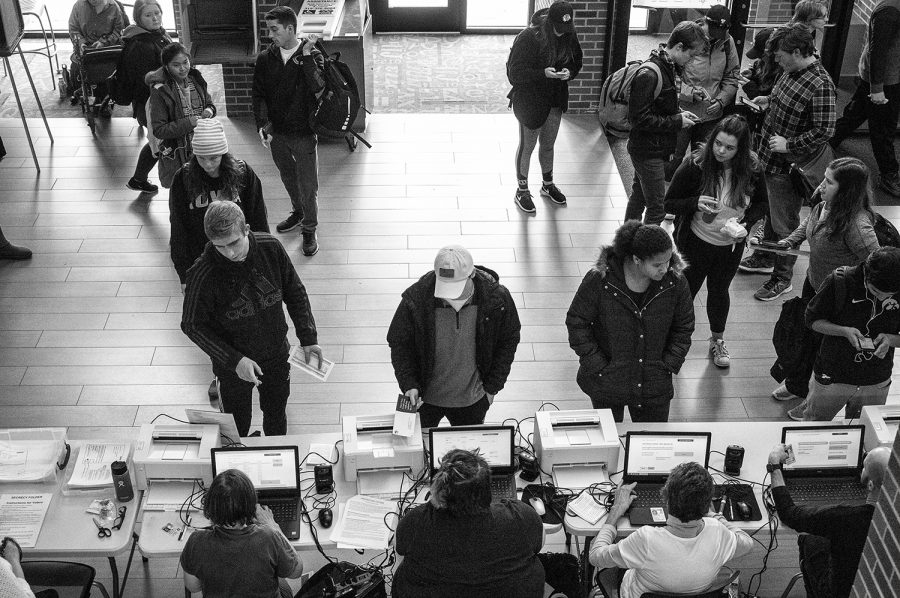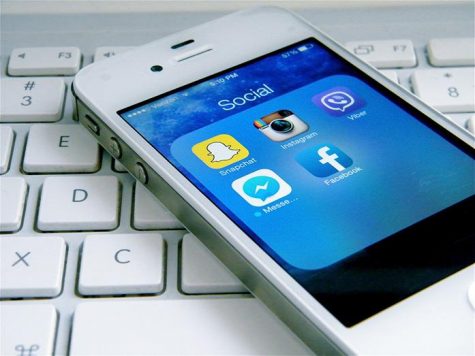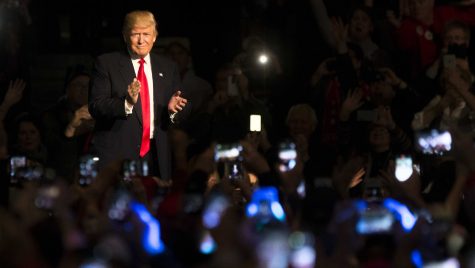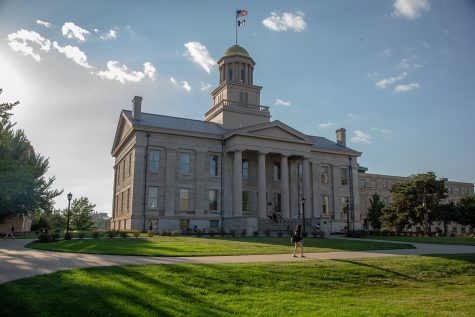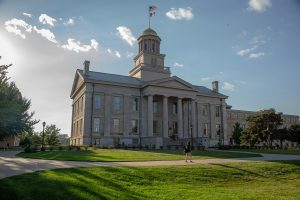Kumar: Election bill unfairly targets students
The election bill that recently passed through the Iowa Senate unfairly targets students by making it harder to vote.
Voters wait to vote at the University of Iowa Library.
March 13, 2019
You’d think that in a country that claims to value democracy above everything else, it would be easy to vote. However, that’s not the case in the United States and especially in Iowa recently. Some of the provisions in a recent election bill advanced in the Iowa Senate make absolutely zero sense. Under the pretense of consistency, the Senate attempts to make voting harder for Iowans, specifically for university students.
The bill closes polls an hour earlier and would prohibit satellite voting in any state-owned building, which hinders early voting. As of right now, day-of voting shouldn’t be affected. However, this directly targets students because we won’t be able to vote early on campus.
Students need access to early voting with our busy schedules, and we need access to on-campus satellite locations. Most students can’t get off campus to vote in the first place if they don’t have cars or the time to go somewhere else. Being able to vote early is convenient and necessary not only for students but the many staff, faculty, and community members on our campus.
Jocelyn Roof, a University of Iowa Student Government senator and chair of the Governmental Relations Committee, was one of the people who led the Hawk the Vote initiative last semester. She hopes that the bill won’t pass with all the current provisions.
“I think the main thing that we’re concerned with voting on campus is with the satellite locations being in state-owned buildings, which means no building on the University of Iowa campus could serve as an early vote location,” she said.
RELATED: Kumar: Thankful for voter turnout
Last fall, there were two early vote locations on campus, one in the IMU and one at the UI Hospitals and Clinics.
“Our biggest argument here is that students are very busy, and they don’t have time to go vote off campus when they spend a majority of their time on campus,” Roof said. “Having that location on campus makes it more convenient and accessible for students and not just students, but faculty, staff, administrators, and employees. It just makes voting overall more accessible.”
This issue goes beyond party lines. It’s about the fundamental American right to vote, regardless of party affiliation, age, gender, race, or sex.
Between the two locations, more than 2,000 people voted early during the 2018 election. UIHC had 1,302 ballots cast and the IMU 982. Currently, UISG has people talking to senators at the State Capitol asking for the line item that deals with satellite voting to be struck. If the bill does pass as is, UISG will work to ensure that early voting locations will be close as possible to campus.
RELATED: Bill could kill satellite voting at UI, decrease access to polls for students
The other provisions included in the bill affect students as well. Closing polls earlier means less time to vote and fewer opportunities to vote. Asking students to report if they’ll move out of Iowa after graduation so they can be removed from the voter rolls, when a majority of students have no clue what they’ll be doing after graduation, is a nuisance as well.
Overall, allowing private institutions to host early voting locations in their campus buildings but not public institutions isn’t fair and doesn’t seem very “consistent” to me. “Consistency” doesn’t seem like a solid enough reason to undermine people’s accessibility to vote.
RELATED: Young voters in Iowa turned out in a decade-high rate in 2018
This issue goes beyond party lines. It’s about the fundamental American right to vote, regardless of party affiliation, age, gender, race, or sex. This bill, whether intentional or not, makes it harder for students to vote by diminishing the opportunities they have to vote. Legislators and students need to understand that if this bill becomes law, we won’t see historic voter turnout like last year again because it won’t be convenient for students, staff, faculty, and community members to vote.



